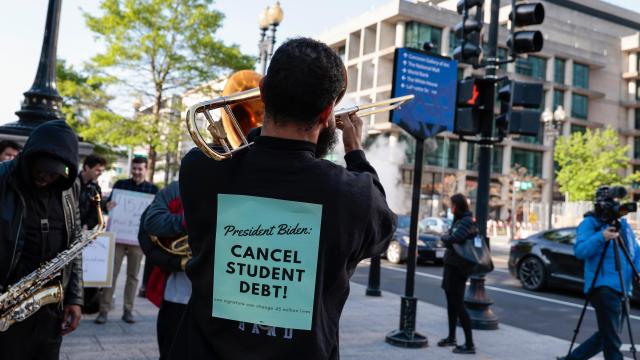U.S. telecom providers, under a new FCC order, will have to take “all necessary steps” to block calls from a shady communication company engaged in a mass robocall scam praying on people seeking student loan forgiveness.
The scammer company, called Urth Access, LLC, would reportedly spam users with calls urging them to forfeit their personal information or pay a fee in order to receive up to around $US10,000 ($13,882) in student loan debt relief. Many of the scams reportedly referred to the Biden Administration’s student loan forgiveness plan to give the messages a semblance of credibility. Though numerous fraudsters took part in the scam, an investigation conducted by the FCC and its private partner YouMail said Urth Access stood apart as the largest, accounting for around 40% of the robocalls in October.
“Scam robocalls try to pull from the headlines to confuse consumers,” FCC Commissioner Jessica Rosenworcel said in a statement. “Trying to take advantage of people who want help paying off their student loans. Today we’re cutting these scammers off so they can’t use efforts to provide student loan debt relief as cover for fraud.”
The new order asks telecommunications companies to cease accepting phone calls coming from Urath Access, or report efforts they are making to limit Urath’s reach in an effort to shut down the scams.
“We will continue to deploy all of the tools in our arsenal to eliminate bad actors’ access to U.S. communications networks in furtherance of their schemes,” Rosenworcel added.
If all of this sounds somewhat familiar, it’s because robocalls are one of the most pervasive scourges in modern communications that just can’t seem to die. In 2021 alone, U.S. adults were slammed with 78.9 billion robocalls, according to a GSMA report. That’s up 2% from 2020 but down from a 2020 high of 106.9 billion calls. All of that’s leading to real world financial harm for victims. Last year, according to a report from Truecaller, U.S. adults were collectively scammed out of $US29.8 ($41) billion due to phone scams.
In 2020, the FCC tried to stem the tide by mandating service providers to implement its SHAKEN (Signature-based Handling of Asserted information using toKENs) and STIR (Secure Telephone Identity Revisited) technology. That new authentication method mandate made some difference and is still being invoked to threaten bad actors, but has so far failed to drastically reduce robocalls and scams.
The sad reality is, despite the FCC and other regulators’ best efforts to block specific bad actors, those initiatives likely won’t make much of a difference in quelling the sea of robocalls flooding people’s phones. Internet-based voice systems and increased mobile phone usage have made mass calling phone numbers with a click of a button cheaper and faster than ever. The same GSMA report, for example, notes VOIP calls accounted for 61% of total robocall volume in 2021 Similarly, the widespread and largely legal use of spoofed local numbers means users are more likely to actually answer their phone. (Or in other cases, simply revert others into mass ignoring all of their calls out of fear).
Even when regulators can successfully identify robocall scammer operations, many of those actually operate overseas outside of the FCC or other regulators jurisdiction. And in cases where regulators fine scammers operating from within the U.S. reports show those companies rarely end up paying anywhere near the full amount in fines.
